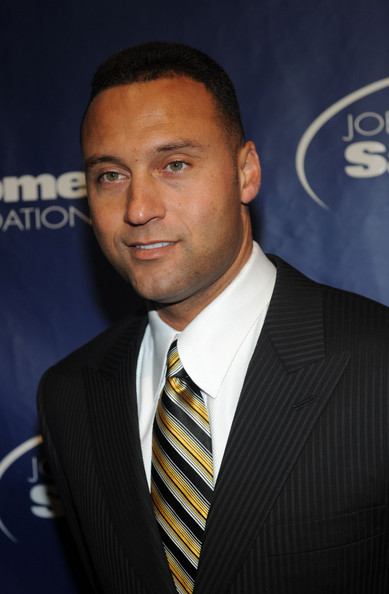|
A good actor always knows his cues. The last loads of Super Bowl schleppers were being hauled back to civilization when Derek Jeter entered, stage right.
Jeter took batting practice on the field in Tampa Monday and said he was fine. Of course, he says that when he has broken bones. Funny thing. I was thinking of Jeter last Thursday while watching the current London production of Coriolanus, in our favorite movie house in Kew Gardens, Queens. It seemed to me that the star, Tom Hiddleston, resembled the Yankee captain: A star. A distant star. But a star, nonetheless. Probably not a good recommendation for the production, if your mind wanders like that. Hiddleston is popular with young audiences. (The Queens audience skewed decades younger than usual for the mid-week production, live from the UK.) We saw Ian McKellan play Coriolanus at the National Theatre in 1984, for goodness' sakes. McKellan was 45, an aging and properly arrogant soldier-survivor. Hiddleston looks like a star shortstop. With my mind wandering from this pop version of Shakespeare, I found myself hoping Jeter has one more good year left in him. This is no fun, even for somebody emphatically not a Yankee fan, to watch the wheels fall off one of the signature players of our time. Jeter has started the rallies, clapping his hands as he reached second base, standing up, staring back at the dugout, as if saying, “Next!” He retrieved a wayward baseball and retired a knucklehead who did not bother to slide. (One of my favorite columns:) http://www.nytimes.com/2001/10/26/sports/sports-of-the-times-slide-jeremy-slide-slide.html Jeter has also played an extremely dependable shortstop. He is the Yankee captain. He doesn’t give much of himself away, but he represents the team. Coriolanus would respect him. Is it too much to ask that Derek Jeter be healthy and productive for one more season, clapping his hands at second base and retiring knuckleheads? Plus, he knows his theatre. Football exits, stage left. The captain walks out on the field.
Gene Palumbo
2/5/2014 03:16:17 am
You can see Jeter's incredible play - the one George refers to in his column - here:
George Vecsey
2/5/2014 03:54:57 am
Gene, thanks. Do you think it is possible that in this infinite universe some day we will click on that video and the poor knucklehead will slide? GV
Gene Palumbo
2/12/2014 07:52:16 pm
George has a column in today’s (Tuesday, Feb. 12) Times: “Jeter’s retirement announcement hits the right note.”
Gene Palumbo
2/12/2014 08:08:29 pm
Sorry, got the date wrong. It's Wednesday, Feb. 13. But the link is right.
Hansen Alexander
2/19/2014 02:37:40 am
George, I think Jeter is the one athlete that you just "didn't get." He reminds me of Nick Sabin. Behind the official sounding rhetoric, he has actually always said a lot. I know it sounds counter to journalistic logic, but I believe you have to take Jeter literally. Of course, I've never talked to the man in my life, naturally qualifying myself as an expert in the matter.
Hansen Alexander
2/19/2014 02:42:28 am
PS George: I'm a little concerned that you finished the World Cup book so quickly. Are you confident that you were at your best powers of description in discussing important amd dramatic goals you've witnessed? You've written about them in columns with Hemingway like powers of description, and I always want a man to be writing at his best. Comments are closed.
|
Categories
All
|











